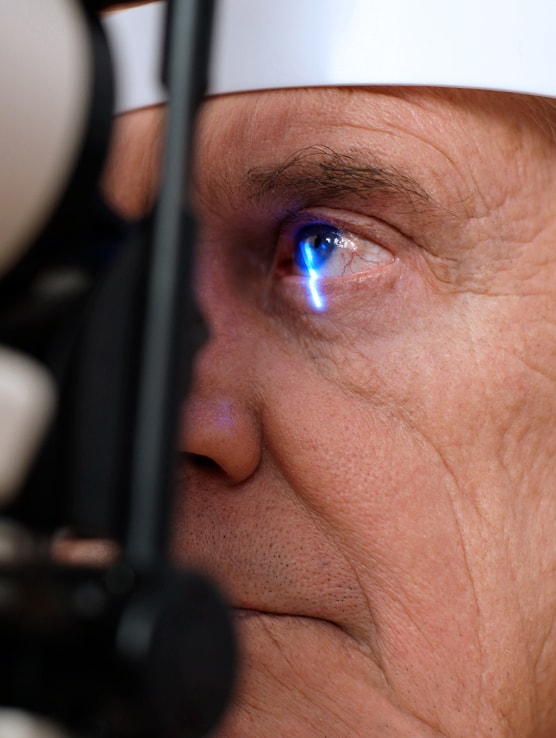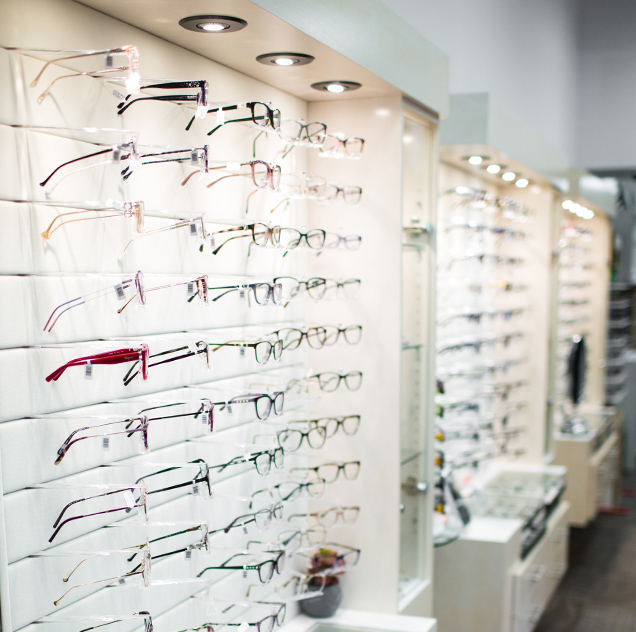
Proudly Canadian ![]()
Please note: Our dispensary is closed daily from 1:00 PM – 2:00 PM for lunch.

At Henderson Vision Centre, we help diagnose and manage numerous eye diseases. The diseases listed below are some of the most common conditions we handle.
If you are worried about an eye disease that is not listed on this page, please contact our office with an inquiry and let one of our qualified team members provide additional details.
We use a comprehensive eye exam to diagnose glaucoma. During the exam, we perform the following tests:
Glaucoma cannot be cured, though in most cases it can be managed. Managing glaucoma requires an ongoing partnership between doctor and patient. We prescribe medications and a treatment plan, following up with regular exams to make sure you are following our recommendations effectively.
Some glaucoma medications can cause discomfort, but it is vital that you consult with us before discontinuing their use. Most treatment regimens for glaucoma are only effective for those who follow them carefully.
Comprehensive eye exams are the best way to diagnose cataracts. During the eye exam, we can detect cataracts with the following tests:
In cataract-removal surgery, we replace your eye’s natural lens with a plastic intraocular lens (IOL). The IOL takes over all functions of the old lens and cannot be seen or felt after the procedure.
There are several types of cataract-removal surgery, but they all follow the same general process:
Age-related macular degeneration (AMD) commonly affects those over the age of 60. It occurs when the central portion of your retina (known as the macula) begins to break down.
AMD comes in 2 forms: wet (neovascular) or dry (non-neovascular). The term neovascular refers to the unwanted growth of new blood vessels in the macula.
There is no cure for AMD. However, some treatments can delay its progression and even improve vision when implemented early.
Nutritional changes can help delay the onset of wet AMD when it is still in the dry stage. Most treatments for wet AMD use injections to prevent the growth of abnormal blood vessels.
Regular maintenance is the best way to prevent AMD or slow down its symptoms. If you are over 45 years old, we recommend scheduling complete eye exams with us at least once every 2 years. If you are already diagnosed with AMD, you should monitor your vision daily and notify us of any changes you experience as soon as possible.
You can find us in the River East Plaza, between Safeway and Booster Juice, and across from Tim Hortons. We have plenty of parking available on-site.

*Please note we are CLOSED on Saturdays of long weekends and for the months of July and August.








“Just had the first eye exam for my daughter with Dr. Chow. My daughter really does not like doctors… but Dr. Chow was perfect she did the exam flawlessly and handled my daughter’s objections really well. ZERO stress. Now my daughter is excited to come back for her next eye exam in a year. Thank you also to Dr. Mestito-Dao super nice and super accommodating! Not to mention the staff, pro’s at what they do. Thank you and nicely done HVC!”
“I had a very good experience with this clinic. The reception staff were warm, and efficient. My insurance coverage was handling very well. The pre-exam procedures were done well, by staff that were well versed in doing them. The Optometrist (Dr Zimmer), was excellent to deal with and very thorough. The office had a pleasant ambiance, and I left my appointment with a very “good feeling” about the whole experience. I will be booking my appointments with this clinic again.”
“Every time I go to the H.V.C. I’m very pleased with Dr. Mundle & his staff’s thorough eye examination. They always take their time to explain & answer any questions I have regarding their tests & procedures.”
“Everyone was very friendly. They went over and above to explain everything to me. Helped me pick out new glasses which I’m obsessed with. When I went back in to pick them up the girl was so excited to help me and I left feeling so confident.”
“The staff are so friendly and it’s a very welcoming place. I see Dr. Mestito-Dao and I always feel like she listens to me and offers great feedback & advice. The exams are thorough so I also feel reassured that I’m in good hands and have had a comprehensive appointment. I would recommend Henderson Vision Centre to anyone.”
Yes, the discomfort from dry eyes can contribute to headaches for many people, but dry eye itself does not cause headaches. […]
Yes, the discomfort from dry eyes can contribute to headaches for many people, but dry eye itself does not cause headaches. […]
2026 glasses are a blend of bold self-expression and classic comfort, with styles that let your individuality shine through. […]
2026 glasses are a blend of bold self-expression and classic comfort, with styles that let your individuality shine through. […]
That stinging feeling when you cry can happen when the delicate balance of your tears is disrupted or when outside irritants mix with them. […]
That stinging feeling when you cry can happen when the delicate balance of your tears is disrupted or when outside irritants mix with them. […]